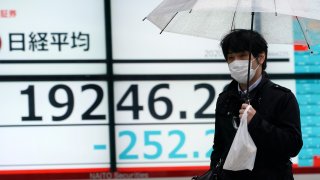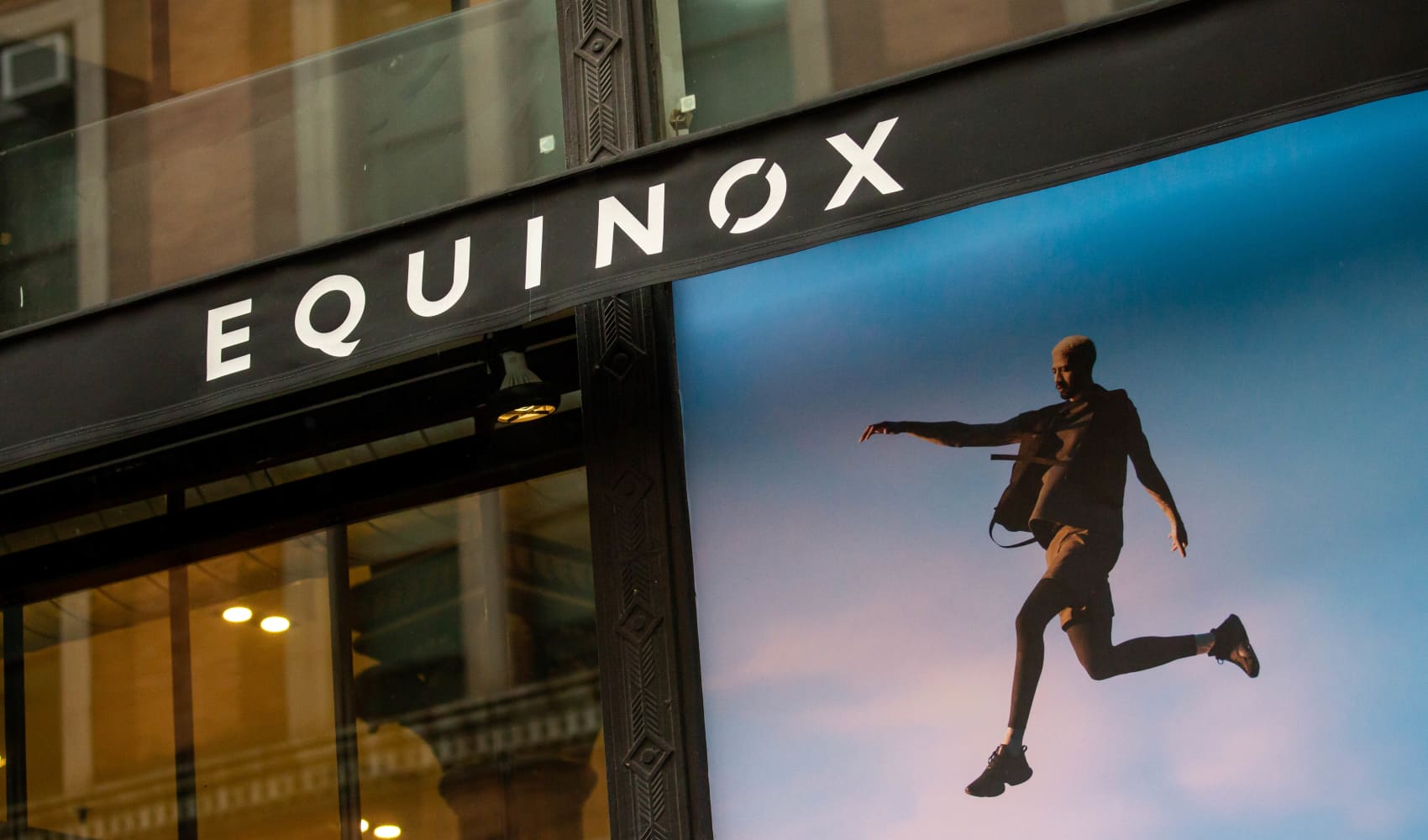
Asian stock markets followed Wall Street higher on Friday after U.S. regulators removed some limits on banks' ability to make investments.
Benchmarks in Tokyo, Sydney and Southeast Asia advanced while Hong Kong declined. Chinese markets were closed for a holiday.
Wall Street closed higher after the Federal Reserve and other regulators announced they will ease rules that limit banks' ability to invest in hedge funds and some other areas. The change could help to shore up slim bank profits after central banks cut interest rates to almost zero in response to the coronavirus pandemic.
Gains were relatively small because Washington delivered no more than was expected, said Stephen Innes of AxiTrader Corp. in a report. He said markets gave a similar “mild reaction” to the Bank of England's earlier decision to ease policy.
Get New England news, weather forecasts and entertainment stories to your inbox. Sign up for NECN newsletters.
“Investors are finding it hard to see the marginal or incremental new support,” said Innes. “Investors may need more prominent catalysts. Ideally a vaccine.”
The Nikkei 225 in Tokyo rose 1% to 22,488.95 while Seoul's Kospi gained 0.7% to 2,128.23. Hong Kong's Hang Seng lost 0.4% to 24,671.06.
The S&P-ASX 200 in Sydney added 1.1% to 5,879.50. New Zealand, Singapore and Jakarta also advanced.
Business
Analysts say investors are looking ahead to a possible rebound from the deepest global downturn since the 1930s and trying to buy companies that will thrive after the pandemic ends. But they warn the market rise might be too fast and too early to be sustained by an uncertain economic outlook.
Asian economies are wrapping up their worst quarter since the 2008 financial crisis.
The U.S. economy shrank by 5% in the first quarter of the year, the Commerce Department reported Thursday. Forecasters expect a worse decline during the quarter that ends next week.
Investors in the United States have been encouraged by official moves to lift anti-virus measures and allow businesses to reopen. But some states have reimposed curbs after a resurgence in new infections.
Hospitalizations and cases have hit new highs in California, Florida and Texas, which is suspending its aggressive reopening. The daily number of confirmed cases in the country closed in on the peak reached in late April.
Asian governments are due to report June trade, factory output and other indicators next week.
“With second COVID-19 waves spreading in some countries and first-wave outbreaks not yet over in others, the economic slump has a long way to go,” Prakash Sakpal of ING said in a report.
On Wall Street, the benchmark S&P 500 index rose 1.1% to 3,083.76 after falling 0.9% at one point. The benchmark index is on pace for its best quarter since 1998.
The Dow Jones Industrial Average rose 1.2% to 25,745.60. The Nasdaq, which hit an all-time high earlier this week, gained 1.1%, to 10,017.
Technology and health care stocks also helped lift the market, outweighing losses in utilities. Bond yields fell, a sign of caution.
Macy’s slid 4.1% after the department store operator announced it is laying off 3,900 corporate employees, or roughly 3% of its workforce.
On a more encouraging note, orders to American factories for big-ticket goods rebounded last month from a steep pullback in April and March as the economy began to reopen.
JPMorgan, Bank of America and Citigroup all rose more than 3% as investors cheered word the Fed and other bank regulators will ease restrictions imposed by the Volcker Rule enacted to curb banking excesses after the 2008 crisis.
After the close of trading, the Fed ordered the 34 biggest U.S. banks to suspend buybacks of their stock and to cap dividend payments until Sept. 30 so they can shore up their defenses in case of a damaging recession.
The Fed said its annual “stress tests” showed banks would collectively lose about $700 billion in a worst-case scenario.
In energy markets, benchmark U.S. crude rose 43 cents to $39.15 per barrel. It closed Thursday at $38.72 a barrel. Brent crude, the price standard for international oils, added 41 cents to $41.53 per barrel in London. It closed at $41.05 the previous session.
The dollar declined to 107.14 yen from Thursday's 107.23 yen. The euro was little-changed at $1.1222.



